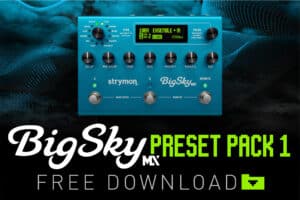
BigSky MX Preset Pack 1
Explore Our First BigSky MX Preset Pack! As part of the latest Nixie 2 update, we’ve put together a free BigSky MX preset pack featuring sounds
Free US Shipping On Orders Over $49
Easy 30-Day Returns
Financing Available Through ![]()
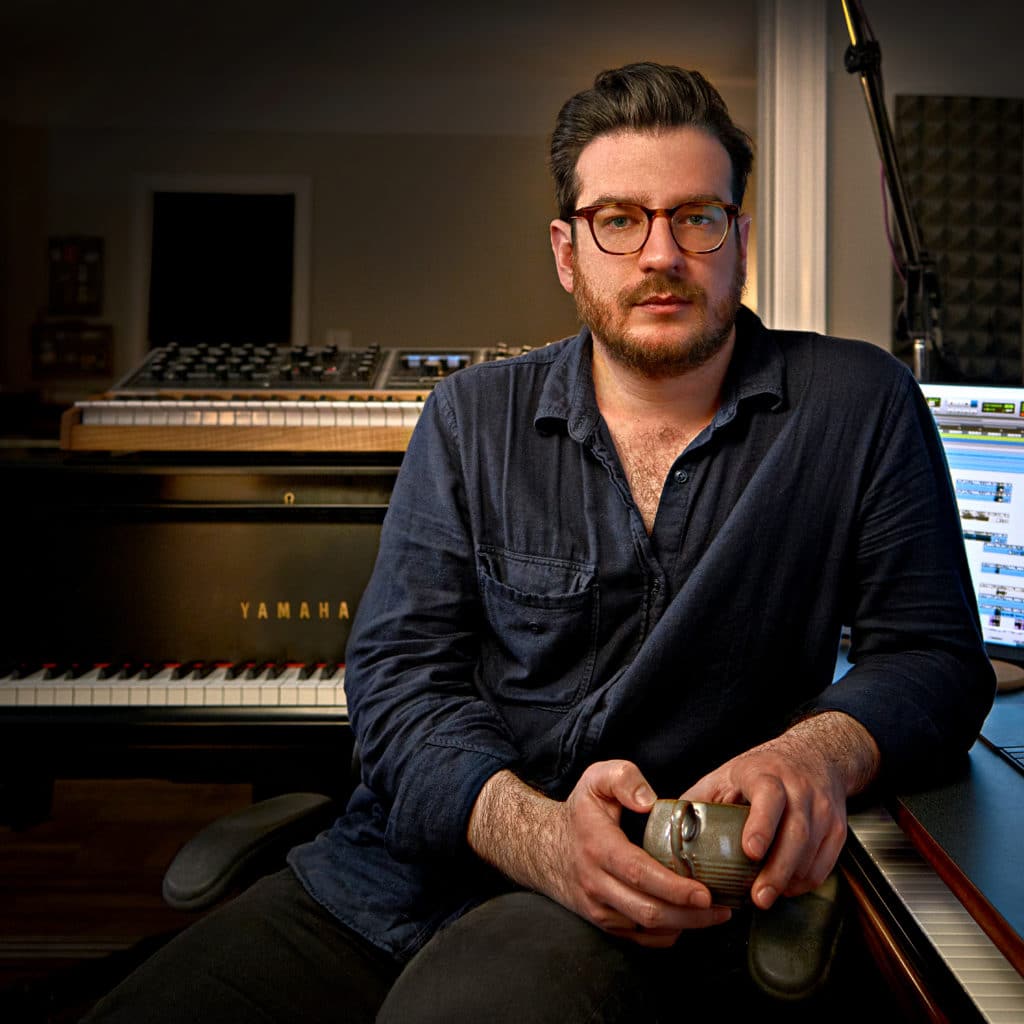
In today’s artist feature, we’re talking with Tony-nominated composer, producer, orchestrator, and sound designer Daniel Kluger! We’ll talk about his recent work in the theater world, discuss some of his inspirations and approaches to sound design, and find out about his upcoming projects.
Hi Daniel, thanks for taking the time to talk with us! We hope you’re doing well. For some of our readers who may not be familiar with your work, you are a composer, producer, and orchestrator, among other things, and you were recently nominated for a Tony Award for your work on the play The Sound Inside. Can you tell us about the experience of working on a production of that scale? Did you collaborate extensively with director David Cromer and writer Adam Rapp when it came to the sound design and composition, or were those areas where you had a lot of free rein?
I read the script for Adam’s play in one sitting and was totally transfixed. It has surprising and unsettling turns and the kind of imagery that makes you want to write music. The production was a really quiet, almost hypnotizing experience, and the music had to have a similar delicacy and silence. David Cromer is one of my favorite directors because he leaves a lot of room for everyone’s creativity and cultivates an inspiring environment, and then he is really exacting and precise in calibrating the whole production. The play really cast a spell. We put a lot of care into mixing Mary Louise-Parker’s voice as well. It’s a large theater, and we wanted it to feel like you were just sitting in a room listening to her read, so it needed to actually be quite loud, but always spatially connected to her so it didn’t feel amplified. Fortunately with spatial amplification now, you can find that balance and it’s pretty hallucinatory.
I wrote the musical theme for this play as a single improvisation after a really long flight home. This is kind of sentimental but, I had this teacher George W. Russell Jr. who taught me that anytime you play, play like it could be the last time you touch your instrument. I feel like the first time you touch the piano after a long trip is also a special moment. So this piece was a piano improvisation, and then eventually I orchestrated it for the amazing Momenta Quartet.
Click here to listen to To Lie Face Down In A Field Full of Snow
How did you get into scoring and composing? Do you have any advice for people just starting out?
I started out playing jazz piano, grew up listening to Keith Jarrett, and have always been really interested in improvisation. Writing for drama is an interactive and improvisatory process for me. You have to let the rhythm of the story and dialogue determine what you’re doing and then interact with that in a supportive way. You have to be willing to throw musical paint at the wall, and then be ready to go back in and revise it. I feel like scoring asks me to be both an improviser and an editor with equal rigor. You have to get really good at listening. Listening to the dialogue, listening to silence, listening critically to your work to see how it can be better and where to go next.
You have mentioned that you used BigSky on your EP Sunday. Can you give us details on how you used the pedal and what your overall signal flow was for the sounds on that EP?
BigSky sounds good on everything of course… I like using it as a special effect. I have a send from the computer that is always routed to the BigSky and then usually something else to mess it up more. I love modulating reverb. Currently, it’s going into the Erica Synths Zen Delay, so I can send something into a huge space, but then really mangle that with tape delay, drive, and the filter. On the Sunday EP, I would get a track to an almost finished state, and then send the whole thing into the BigSky and then into the Meris Polymoon. The whole mix would go into that setup and I would improvise with the pedals like an instrument. The final track is an edit of those improvisations.
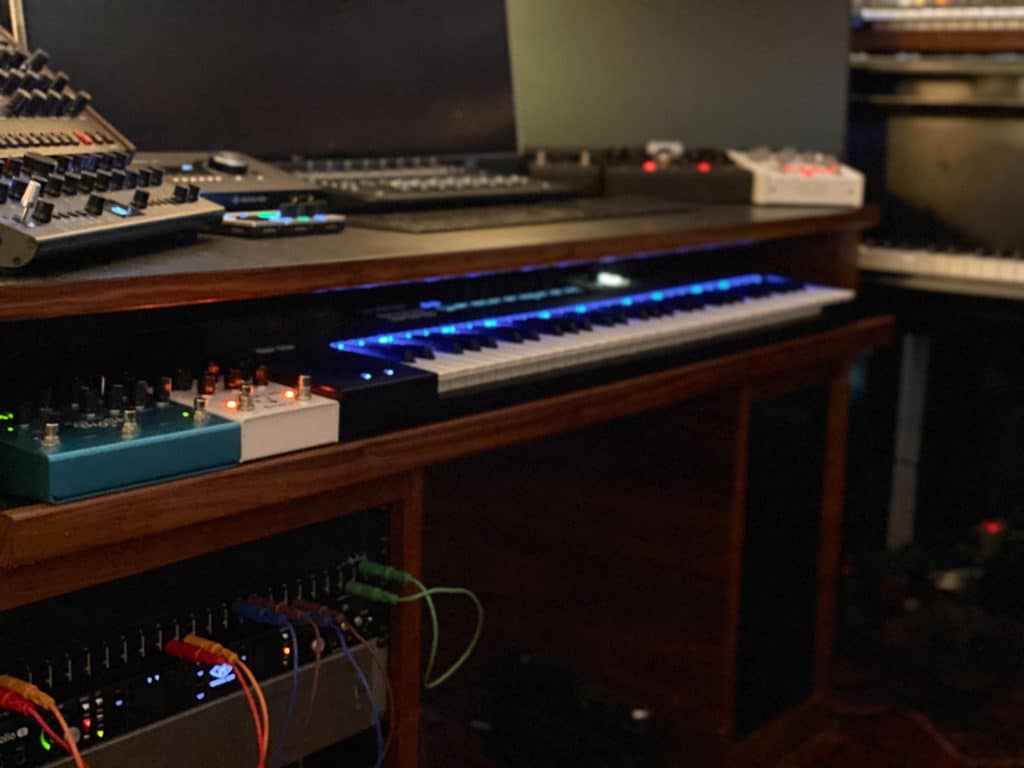
Do the pedals and hardware you use in your work influence the music you write, and also the soundscapes you design? If so, can you tell us a little bit about that?
Absolutely. I love pedals that you can play like instruments. I think my writing process itself is still really rooted in harmony and melody, but having these inspiring sonic tools on hand changes the way you think about time, changes how you can sustain an idea, how you can approach repetition, dissonance, microtonality, etc. It’s almost like I can improvise a duet between the piano and the pedals, between an instrumental performance and a later manipulation of it. Also, Iridium has really been a game-changer for tracking guitar quickly and quietly.
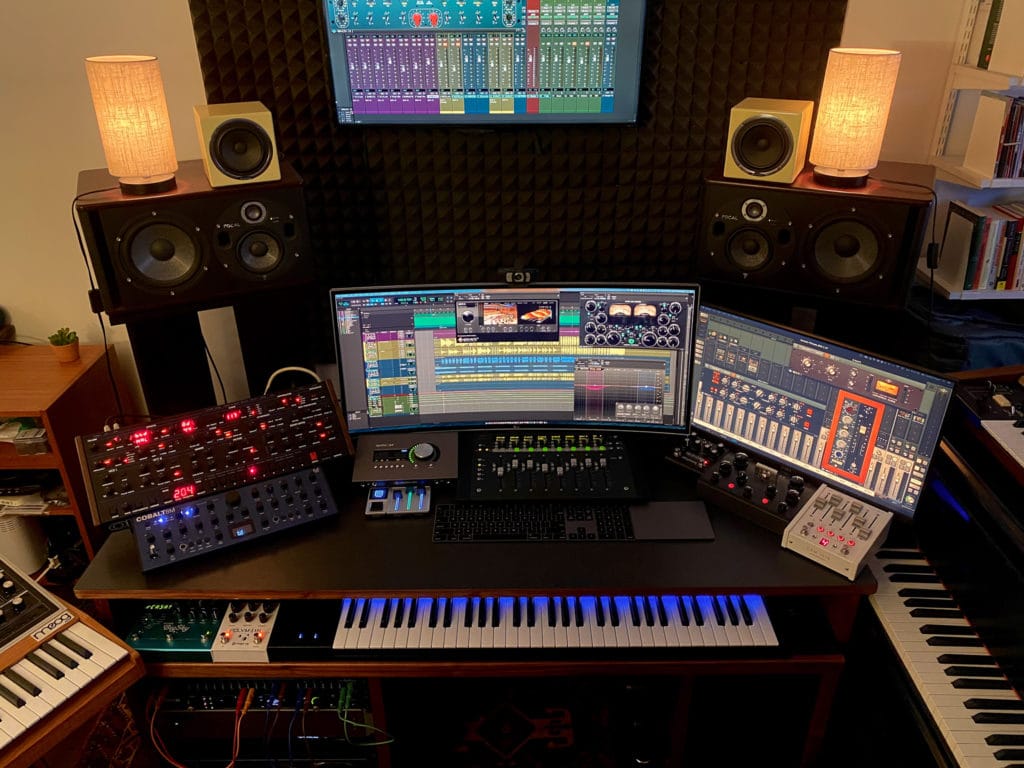
Who are some of the people who have inspired you when it comes to the production side of things? What about scoring and composition?
I’ve been really lucky to work with John Kilgore (of Steve Reich’s later records) on dozens of projects, and he’s taught me so much about recording common sense and how to collaborate in the studio. In terms of inspiration, I am obsessed with the production of Frank Ocean’s Blonde, full stop. I also love every Punch Brothers record – they really influenced me on Oklahoma! These days I’m really into Cécile McLorin Salvant. I also love Anthony Willis’s score for Promising Young Woman, and everything Hildur Guðnadóttir is doing.
I thought that your work on Daniel Fish’s Oklahoma! revival was very exciting — the idea of taking such a classic musical and completely reimagining it like that seems like it would be a really cool project. Do you have any other dream projects you’d like to do in the future? Any other musicals you’d enjoy giving a similar treatment (as you did to Oklahoma!), or any other directors you’d really like to work with?
So many lucky elements fell into place for Oklahoma! – not least of which was the virtuosic band we had led by Nathan Koci. Our exquisite guitar player Brett Parnell is a huge Strymon guy and we used Flint pedal all over that show. That project really felt once in a lifetime in terms of the ability to take those creative liberties with those songs. I would love to take a crack at another old one like that, but I also really love collaborating with new composers and I’m super excited by the renaissance of movie musicals coming out. I just saw Summertime by Carlos López Estrada and I feel like that film is pushing the envelope of what musical theater and movies can be.
Are there any new projects you can fill us in on – upcoming, or that you’re currently working on?
I just finished scoring two features this year and am excited for a few more film projects coming up. There’s a new album I’m working on to be released on Archie & Fox Records. I started the label this year with the playwright Ken Urban, who has this fantastic project Occurrence. We’re hoping to promote theater music since there is something of a dearth of spaces for that. We’d love to make the play soundtrack a thing and spark some more conversation about how music gets made for the theater. Check out our blog featuring JJJJJerome Ellis’s score for HELP, returning to The Shed this year.
Big thanks to Daniel Kluger for taking the time to talk to us! You can check out Daniel’s music here, as well as Spotify, Tidal, Apple Music, and more. Follow him on Instagram @danielklugermusic.
Subscribe to our newsletter to be the first to hear about new Strymon products, artist features, and behind the scenes content!

Explore Our First BigSky MX Preset Pack! As part of the latest Nixie 2 update, we’ve put together a free BigSky MX preset pack featuring sounds
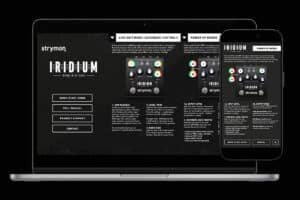
If you happen to be one of those Strymon owners who know that their favorite units might have some extra capabilities but can’t remember exactly
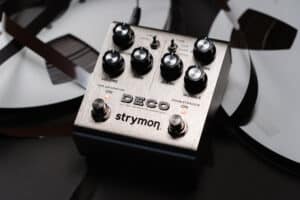
From our favorite artists’ new releases to amazing concerts, and existing artists we’re just finding out about, 2024 was a year filled with great music.